Setting up your Linux Mint computer to connect to My Private Network’s VPN should take just a few minutes using the PPTP protocol. Please note that your computer needs to be connected to the Internet and able to browse the web before moving on with the instructions below. The steps below are for Linux Mint 17.2 Rafaela (Cinnamon) but the steps should apply to most Gnome 3 based Linux systems.
While we recommend using our SSL OpenVPN application as the first option to connect to our service on Linux Mint, there might be some cases where this might not work well on your network. In this case, you can try this alternative PPTP VPN connection, which is much easier to setup compared to the other protocols.
Not yet registered? It’s quick and easy, Sign Up now!
Check Internet Connectivity
Make sure your system is connected to the internet and that you are able to browse the web. To check your location, please go to our IP Info page.
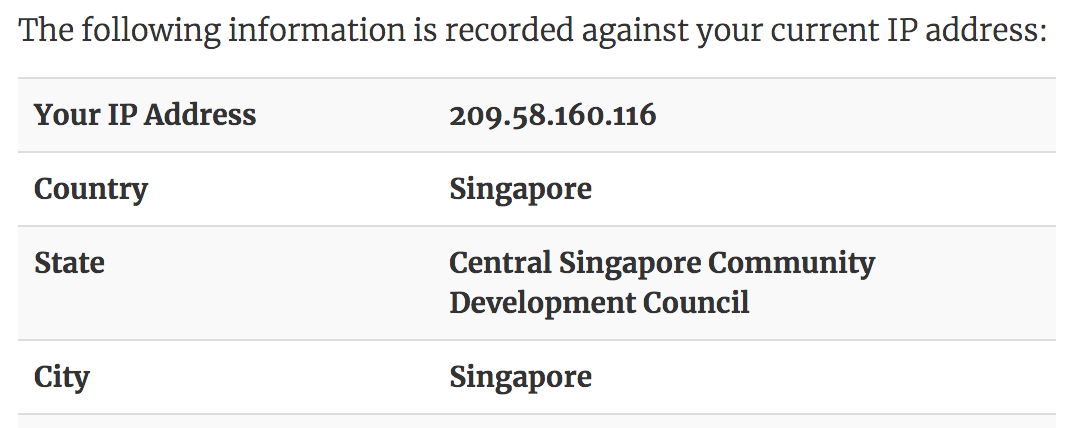
This shows the IP Address and country that you are currently connecting from, in this example, the user is connecting from Singapore.
Getting Started
From the desktop click on the Network icon at the bottom right hand corner and click on Network Connections.
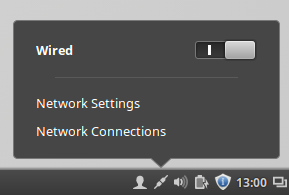
Click on Add to create the new VPN connection.
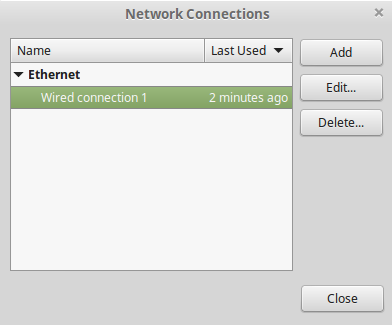
Select Point-to-Point Tunnelling Protocol (PPTP) and click on Create.
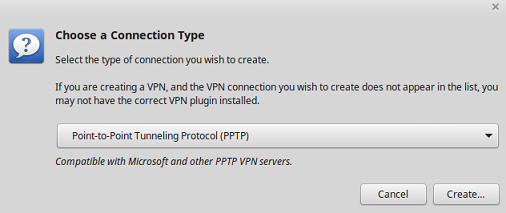
PPTP Connection Configuration
Now enter the VPN details as below:
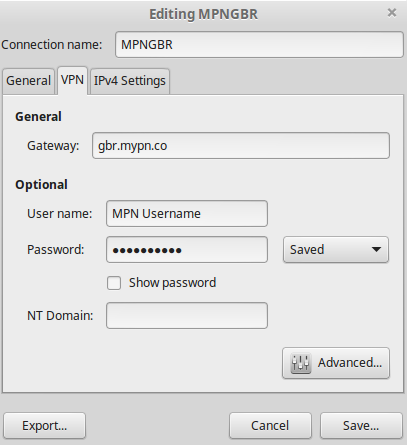
Connection name: MPN GBR
Gateway: gbr.mypn.co (assuming you’re setting up a VPN connection to the U.K)
Note: If you wish to use our Free service, the servername that you need to use is fre.mypn.co and your connection will be rotated between different countries we have in our Free VPN cluster.
To connect to any of our other servers, (ie. our USA servers) simply change the Server name and rename the Connection name to reflect another location. For a list of server names, please refer to our complete list of servers here.
Next, enter your My Private Network Username and Password that you registered with and then click Advanced.
Advanced PPTP configuration
Uncheck PAP and CHAP and ensure that MSCHAP and MSCHAPV2 are the only methods selected.
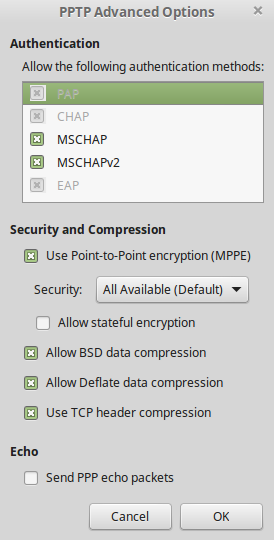
Check the box labelled Use Point to Point encryption (MPPE), leave other settings as default and then click OK.
Click Save to save the VPN configuration.
Enabling VPN Connection
Now start the VPN connection by clicking on the Network Manager icon again, and under VPN Connections you should see the connection that you have just created.
Click on it or just click on the VPN Connection slider to connect.
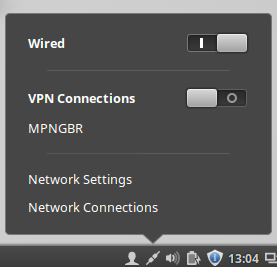
Enter you My Private Network Password if it prompts you.
After a few moments. the VPN Connection slider should be turned on (1) indicating that the VPN is now connected.
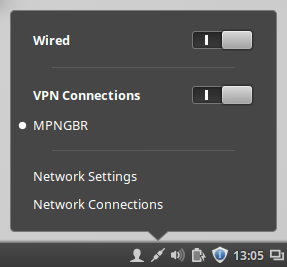
Check your IP Address
If you now check your IP address again from the IP Info page, your location should show that you are now in the U.K (or which ever country you have connected to).
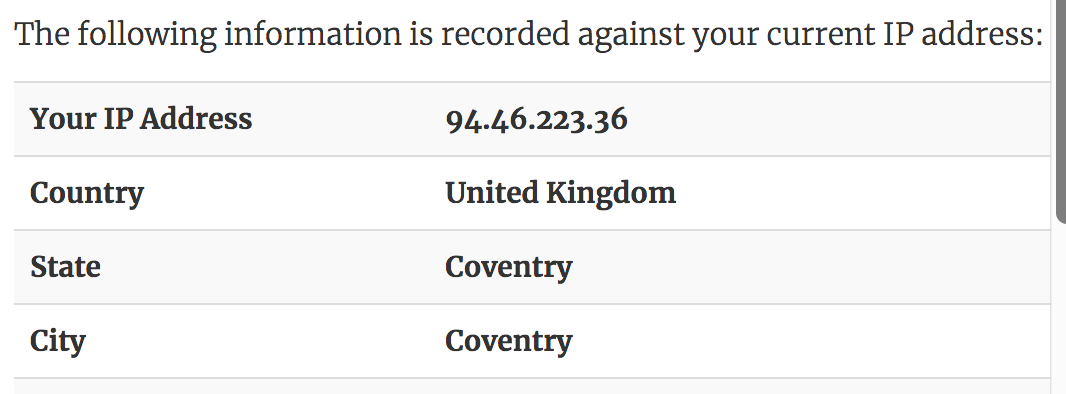
Note: the server IP address and country name will vary depending on the server or country you are connected to.
That’s it! You are now connected. All your internet traffic will now be transmitted securely via our VPN servers through the country you had configured.
Any Problems?
Unfortunately it doesn’t always go to plan!
If you have any problems or can’t get connected, first please reboot your system and see if that resolves the problem.
Failing that, please type this command into your Terminal and run the VPN:
tail -f /var/log/syslog
![]()
Send us a screenshot or copy paste the error message as this will enable us to know where exactly the VPN is failing.
For further assistance, please email us at This e-mail address is being protected from spambots. You need JavaScript enabled to view it. We’ll get back to you as soon as possible and try to help.